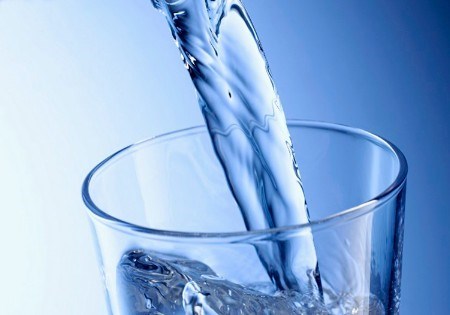THUNDER BAY — Although many Thunder Bay residents remain at risk from drinking water with unsafe levels of lead, an anti-corrosion program the city initiated last year to mitigate the problem seems to be working.
Lead can be harmful to human health, especially to children.
Older infrastructure significantly increases the risk. As in the case of other Canadian cities, Thunder Bay has thousands of homes with water pipes and connections that contain lead, and it will take years to replace them.
Starting in March 2018, the city added sodium hydroxide to the distribution system to reduce acidity and cut the amount of lead that leaches into the water before it gets to householders' taps.
The most recent available test results show what Michelle Warywoda, director of the city's Environment Division, describes as "significant" improvement.
Before the corrosion control program was launched, about 30 per cent of water samples taken at the tap had higher concentrations of lead than the Ontario government's standard of 10 micrograms per litre.
Between January and June 2019, water samples produced a failure rate of only 6.7 per cent to 8.9 per cent.
"We're quite pleased. These are just preliminary results, so we're looking forward to seeing what a full year will be like," Warywoda said.
The statistics she provided to Tbnewswatch on Monday were not available when national media outlets recently conducted a Canada-wide investigation of the lead content in drinking water.
Their report was based only on 2017 and 2018 test results.
Warywoda explained that although the city initiated its control program in March 2018, it took until the fall of 2018 for the water to reach the targeted reduction in acidity.
It's important to note that the national study was based on the federal government's limit of only five micrograms of lead per litre of water, which is half the Ontario guideline.
The federal standard puts the city's rate of lead contamination in the water in a much poorer light.
"We'll have to see if the province ends up moving to five, but right now we're regulated at ten. If we do a measurement of what our exceedances would be [under the federal regulation] our results right now would be a failure rate of 15 to 22 per cent," Warywoda said.
Thunder Bay has an estimated 8,700 privately-owned lead service connections. About 7,000 of these homes also have lead connections on the city's side of the property line.
Homes built before the mid 1950s are more likely to have lead pipes and service lines, while those built up until the 1980s may have copper piping joined with solder that contains lead.
Residents can call the city to find out if municipal records show they have a lead service connection.
The city also offers free water testing.
Warywoda said homeowners are responsible for the cost of replacing a service line on their property, but the city will pay for replacing its portion of the line.
"We would come and measure it first, and see where your lead levels are at," she said, in order to determine if the situation qualified under the city's priority lead replacement program.
The city is also gradually replacing water system infrastructure that has lead components through a watermain renewal project.
The issue of drinking water safety was raised In the legislature Monday by Thunder Bay-Atikokan MPP Judith Monteith-Farrell.
"Lead is still a problem in Thunder Bay. The water is ok, the pipes not so much," the NDP member noted when she asked what the government was doing to help communities such as Thunder Bay deal with the issue.
Environment Minister Jeff Yurek said 99 per cent of Ontario water samples meet provincial standards, but the government is working with municipalities to ensure drinking water is clear of lead.
Yurek said the challenge lies in locating precisely where lead pipes and connections are still in use within the infrastructure of water systems.
